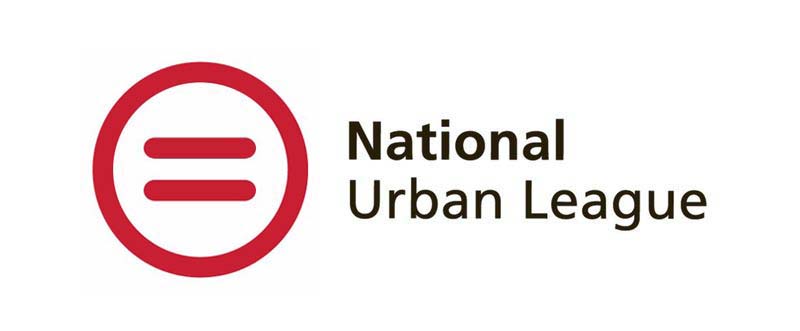Though attitudes are changing, asking about salary in a job interview requires a delicate touch. You want to be polite and sensitive but don’t want to get pulled into a salary negotiation too soon. And, of course, you may think you shouldn’t ask at all! But knowing how to ask about salary in an interview puts you in the driver’s seat and lets you decide if you should continue pursuing the role.
Why You Should Ask About Salary in an Interview
Before accepting a job offer, you’ll consider many aspects, like how much paid time off there is, what the fringe benefits are, or what kind of work-life balance it offers. But salary is probably the biggest thing you’ll consider. After all, your paycheck has a significant impact on your life.
>>MORE: Just how big of an impact will your paycheck have? Find out with our take home pay calculator.
Though times (and laws) are changing, not every job posting includes a salary range. And not every recruiter or hiring manager will bring the subject up, so it may be up to you to ask about salary in an interview.
That said, the thought of asking about salary during your interview may make you nervous. You might worry that bringing it up is rude or could tank your chances of getting a job. But, says Tanja Hinterstoisser, former assistant vice president, career design and employer outreach at Champlain College, “If the employer does not approach you with any salary information it’s definitely appropriate to bring it up.”
Applying to entry-level roles?
Figure out what entry-level roles are right for you at Red Bull with their Role Match Quiz.
What if the Interviewer Doesn’t Know the Salary?
That depends on who you’re talking to!
If you’re talking to a recruiter, they may not know the salary range. So, if they say, “I don’t know,” that’s OK. Likewise, if you’re interviewing with potential coworkers, they also may not know the salary specifics.

Interview Success
Level up your interview skills in this free course from BCLP. Practice for a video interview, learn how to ace the assessment, and more.
Avg. Time: 4-5 hours
Skills you’ll build: Communication, presentation, public speaking, time management, organization
However, if you’re interviewing with the hiring manager, they should know the salary or how much is budgeted for the position. If the hiring manager says, “I don’t know,” or “We haven’t determined that yet,” proceed with caution.
It’s possible the hiring manager is waiting for you to throw out the first number and use that to start the salary discussion. But not knowing the salary for the role could be a red flag about the organization. If the hiring manager doesn’t know the salary, what else are they unaware of?
How to Ask About Salary in an Interview
To be clear, asking about salary in an interview is not the same as negotiating a salary. In this case, you’re asking what the possible salary is, nothing more. You don’t want to start salary negotiations before you have a written job offer.
That said, it’s also critical you’re prepared to talk about salary in an interview — including the employer asking you what your salary expectations are! Here’s how to ask about salary in an interview politely and carefully.

Professional Skills
Explore and identify your professional values and connect with a company that aligns with them in this free course from Discover Financial Services.
Avg. Time: 2-3 hours
Skills you’ll build: Self-reflection, discovery, planning, organization
Prepare for the Reaction
Though some interviewers won’t bat an eyelash when you ask about salary during an interview, others may not react positively. “It’s a downer,” says Hinterstoisser. “People don’t really like to be asked.” But she also notes that how the interviewer reacts can give you an idea about the values and culture of the organization.
For example, an interviewer who seems comfortable discussing pay and benefits likely feels that way because the company values transparency and honesty around salary. Likewise, an interviewer who dances around the topic may feel they can’t talk about pay because the company discourages it.
Hinterstoisser says the best way to handle a negative reaction is to remain confident. Don’t apologize for asking. Instead, explain that it’s critical for you to understand all aspects of the job and that one of those aspects is the salary.

You Are Extraordinary
Learn how to identify and overcome imposter syndrome in this free course from Ashurst UK.
Avg. Time: 3-4 hours
Skills you’ll build: Interview prep, causes of imposter syndrome, positive self-talk, growth mindeset
Hinterstossier says you can respond with, “My decision to join the company is an important one and I want to be sure that on the financial front I am being paid adequately.” You could substitute “adequately,” with a more specific explanation, such as explaining that if you’re relocating, you want to ensure you can afford the change in the cost of living.
>>MORE: Should I Move for a Job?
Time It Right
In some respects, it makes sense to ask about salary early in the interview process. If the job doesn’t pay enough to cover your basic living expenses (rent, food, student loans), it’s unlikely you’ll accept the job.
However, salary isn’t generally discussed in the early interview stages, and that’s OK. Hinterstoisser advises candidates to hold off on asking about salary until the later stages of the interview process. “You want to be sure that the employer is interested in you as a candidate and starts getting a sense as to what your worth really is.”
She also notes that holding off on asking about salary in an early interview allows you to evaluate if the pay range is representative of the actual work.
Many employers have a multi-stage interview process. You may start with a phone screen, then meet with the hiring manager, and possibly have a panel interview with your potential team. Between these three interviews, you’ll likely learn a lot about the job and what you would be doing. With this information you’ll be better able to evaluate if the pay matches the work you’ll be doing.
Do Your Homework
The “risk” in asking about salary in an interview is that the interviewer will flip the question back on you and ask what kind of salary you’re looking for. But don’t skip asking the question because you don’t want to take that risk!

Interview Preparation: Own Your Story
Get prepped and ready for your next job interview in this free course from BCLP. You'll learn how to craft a memorable story about your abilities, ask the hiring manager the right questions, and more.
Avg. Time: 3-4 hours
Skills you’ll build: Career management, storytelling, career development, interview prep
Do your homework before the interview and have a salary range in mind. Hinterstoisser says that Salary.com, NerdWallet, and Indeed are all great places to start. Keep in mind that many of the tools show the average salary range for all experience levels. Make sure to use the filters to see the salary range for someone with your level of experience.
Practice, Practice, Practice
Hinterstoisser points out that while asking about salary in an interview can be a dicey proposition for anyone, it can be especially hard for first-generation college students, people from various racial and ethnic backgrounds, and women.
To help you feel more comfortable asking about salary in an interview, Hinterstoisser says to practice in a mock interview, with an advisor, or even a friend you trust. The more you practice asking about salary, the more confident you’ll feel bringing it up when the time comes.
Sample Questions for Asking About Salary in an Interview
Hinterstoisser says there’s no right or wrong way to ask about salary in a job interview. But one crucial point is that you should ask about a salary range. This “shows that you’re aware an organization has a budget for a role and the budget is determined by [the] company for whatever factors they deem necessary,” she says.
Hinterstoisser suggests starting with, “We haven’t spoken about compensation. I’m wondering what you have budgeted for this role?” If that’s a little too direct for you, she suggests asking, “I’m curious what the pay band and benefits are for this role?”
Other ways to ask about salary in an interview include:
- Can you tell me what you’ve budgeted for this position?
- I’m really excited about this job, but I want to make sure we’re on the same page in terms of compensation. What is the salary range for this role?
- The role aligns really well with what I’m looking for in my next job. Can you tell me more about the compensation for it?
- We haven’t had a chance to talk about compensation. To make sure we’re on the same page, what is the salary for the role?
>>MORE: 15 Questions to Ask the Hiring Manager (and 5 to Skip)
Know Your Worth
Even though salary is just a part of a job offer, it’s a key component of it. If the pay doesn’t meet your basic needs, you probably won’t be happy and will be searching for your next job sooner than you want. Knowing how to ask about salary in an interview ensures you can have the conversation when it’s appropriate for you and choose to proceed with the process or not.
One great way to demonstrate your worth to any employer is with your skills — and a fantastic way to build them is by completing a free Forage virtual job simulation. With hundreds of programs that let you test drive careers, you can find the one that’s right for you and enhance your value. Try one today!
Frequently Asked Questions
Yes! If you run out of time during the interview, you can ask about salary via email after the interview.
“Appropriate” is a relative term. If salary is a deal-breaker for you, you should definitely ask! It’s better to have that information upfront, so you can bow out of the selection process if you need to.
Of course! There’s more to a job than the salary, and you may discover that the entire compensation package is exactly what you need.
Stay strong and confident. Explain why you’re asking and be prepared to state a salary range.
If it’s important to you, then yes. Examples include vacation, paid parental leave, flexible work schedules, training and education opportunities, and career advancement.
Try not to react to a salary that’s less (or more!) than what you expected. If you’re truly interested in the role, the company may be able to compensate you with additional time off or other types of benefits.
Absolutely! There’s no rule that says you have to bring it up first. Just make sure you’re clear on what the compensation package is before you accept the job offer.
Image credit: Canva


